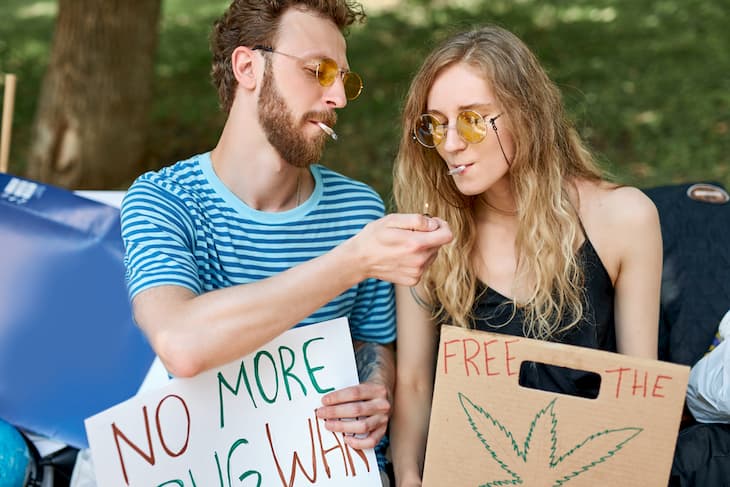
As the push for cannabis reform policies gains momentum across the US, a senior official from the National Organization for the Reform of Marijuana Laws (NORML) now says state-level marijuana decriminalization is not enough.
Decriminalization or legalization?
While underscoring the point that state-level marijuana policies are rapidly changing, NORML Deputy Director Paul Armentano believes that legalization carries more weight than decriminalization. According to a recent survey, a majority of American citizens now accept that marijuana prohibition must end. A good number of politicians are of the same opinion, pushing for options for criminalization.
With the push for cannabis reforms in the offing, both decriminalization and legalization come out as the two most commonly debated policy alternatives. So far, 27 states and the District of Columbia have either legalized or decriminalized recreational cannabis. The latest states to move in this direction are Illinois and Virginia.
Paul opines that both decriminalization and legalization are two separate policies, which are more preferable to outright prohibition. However, he says according to evidence accrued to date, legalization emerges as the superior policy.
Decriminalization is neither a novel nor a particularly progressive alternative to the failed policy of cannabis criminalization…While marijuana decriminalization holds many advantages over a policy of strict criminal prohibition, it does little to either address or sufficiently mitigates many of the systemic problems caused by the plant’s decades-long criminalization, Paul recently wrote.
Decriminalization leaves out the commercial market
Paul says decriminalization specifically focuses on activities that concern individual possession only. Many times, such policies are only applicable to first-time offenders. He adds that decriminalization fails to address activities that are commonly seen as either ‘for-profit’ or commercial in nature, including cultivation or sales. These activities continue to remain criminalized under the decriminalization policy.
In short, while decriminalization provides some relief to the individual cannabis user, it woefully fails to either address or acknowledge the commercial market that exists to provide cannabis to the tens of millions of Americans who consume it, writes Paul, who is also the co-author of the book “Marijuana Is Safer: So Why Are We Driving People to Drink?”
Consequently, Paul says, decriminalization unlike legalization, fails to reduce the size or nature of the illicit cannabis market. It brings no needed controls such as “opportunities for regulators to either impose or enforce age-controls regarding who can possess marijuana or where it may be legally (and safely) obtained.”
Considering all the shortcomings of the decriminalization policy, Paul concludes that a bigger majority of the American public supports legalization. This will allow for the “legal, licensed commercial production and retail sale of marijuana” while restricting its use among young people.
Legalization will also initiate a legal environment that advances open, honest dialogue between parents and their children concerning marijuana’s potential harms. This will ultimately reduce the risks associated with cannabis use or misuse.


